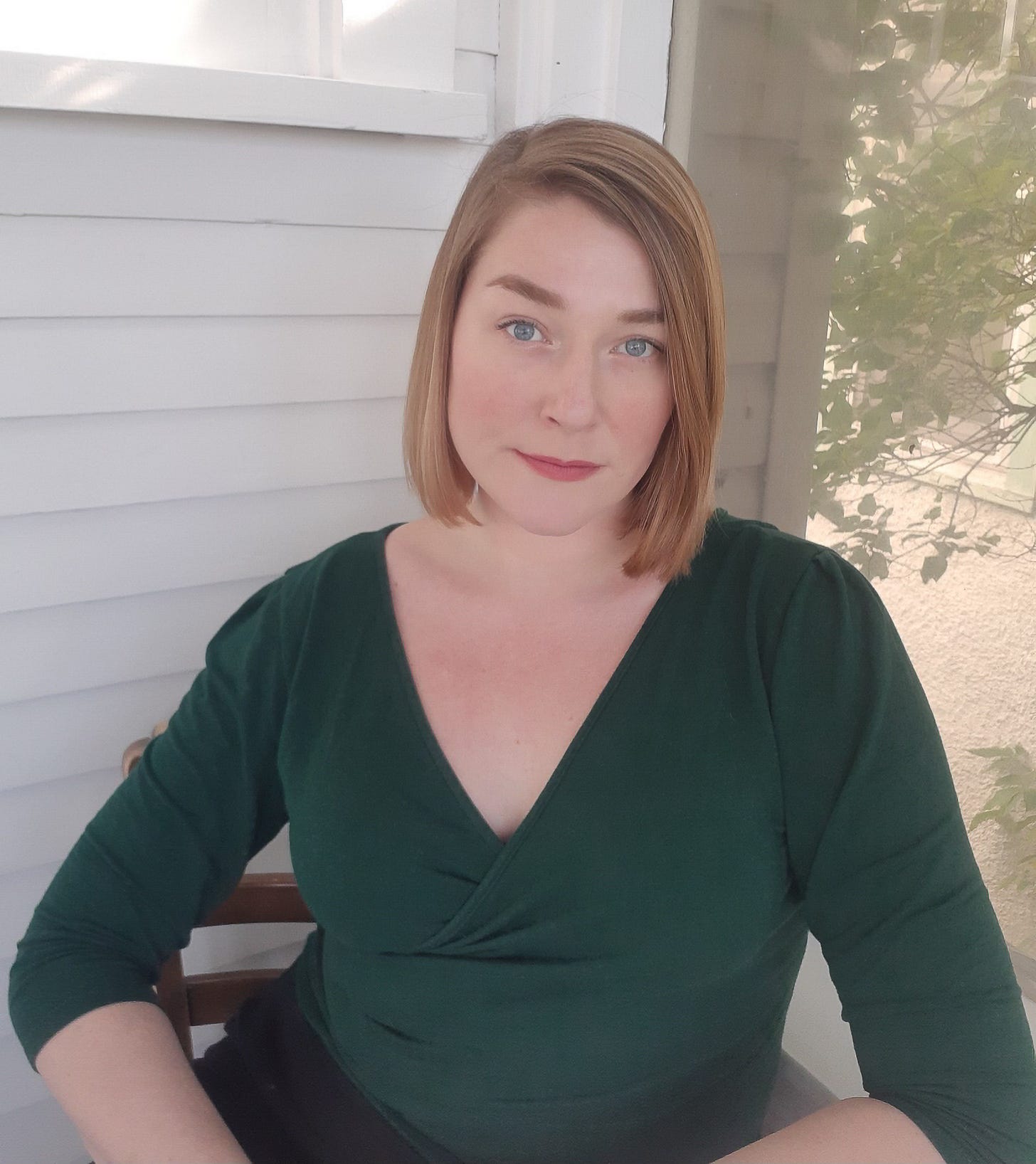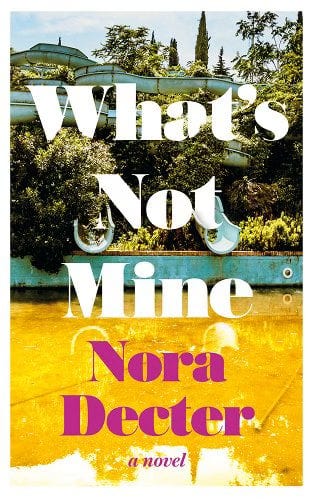Interview with Nora Decter
Writing friendships vary from casual acquaintances to “I’d take a bullet for this person’s work,” and mine with Nora Decter fits into the latter category. We were in the same pod for BookEnds, a novel revision fellowship designed for writers to work in threes. But our third podmate dropped the program, and it was just Nora and I. While I can’t speak for Nora, I found working just the two of us meant we got to go a bit deeper— we met every other week and swapped countless drafts. I doubt anyone will know my novel quite as intimately as Nora or that anyone will read hers as much as I have. And I’ll continue to read it because I love it so much.
I should back up and mention Nora has two novels. Her first, How Far We Go and How Fast, won the 2019 Kobo Emerging Writers Prize for literary fiction. Her latest, the one I’ll never get enough of, is What's Not Mine, and will be out Tuesday. I could gush about how brilliant this novel about addiction and survival is and how much I love the voice— oh wait, I did. You can check out this hybrid interview I did with Nora for CRAFT that starts with an essay about why this novel is just so smart and worth your time.
Also, as promised in Amy’s excellent post last weekend, we’re doing a giveaway! One lucky person, selected by one of those random name picker wheels, will receive a copy of What’s Not Mine. To enter, just like, comment, or share this post by the book’s pub day— Tuesday, April 2nd. (Probably should tag Amy or I so we know you did.) We’ll count each like, comment, or share as an entry, so yes, you can do all three if you’re that ambitious!
Anyway, onto the good stuff! I’m so happy Nora agreed to this interview!
You and I have talked about how awful the querying process is, but we didn't talk about what it was like being on submission. It probably didn't feel like it, but it seems like your agent sold this novel pretty quickly. Was it just as agonizing? Did you ever doubt it would sell?
It did feel like it took forever, yes it was agonizing, and indeed I did doubt it would sell!
While out on submission I did many things you logically shouldn’t do, as is my custom. I didn’t follow the good advice of other writers and focus on a new project—I held my breath whilst refreshing my inbox, for the two-plus months it took. In retrospect, it didn’t take that long and my book found a very good home. But it was an uncomfortable process for sure. I’ll mention all the major publishers the manuscript went out to turned it down and at the time mentors told me a small press might be better in the end. That proved to be true and not just a platitude. Indie presses are publishing daring books that are cool as hell, winning awards, and reaching readers. It would be validating, I guess, to have a big corporation behind a book. But the big guns make decisions based on algorithms and projected profitability and less so based on what books they love the most. Since then I’ve talked to friends in the publishing world who find the experience of working for such companies deadening to their artistic impulses, so complete is the focus on the bottom line. I’ve tried to shed some of the capitalist ideals that I hold myself and my writing to since being “out on sub”.
You also teach. What's your favorite piece of writing advice?
There’s an oft quoted piece of advice from Jeffrey Eugenides that I find just as helpful for beginning writers as it is a periodic reminder for myself. I’m paraphrasing, but he says something along the lines of—when you write, imagine you’re writing the best letter you ever wrote to the smartest friend you have. The idea being that there will be an immediacy, an intimacy, and a lack of unnecessary overtures. I find it often immediately simplifies things in my head to think of writing this way, maybe because I spent my early twenties writing long, frequent letters to one of my best friends. I’ve always thought that experience was just as important to my writing education as any course I’ve taken.
Any reading recommendations?
Mostly I am dying for this semester to be over so I can dive back into my “to read” book pile. That said, I’ve read some stunning books lately. I’m halfway through Nicole Flattery’s novel Nothing Special – it’s so impressive that a Dublin-based writer could transport readers completely to Andy Warhol’s 1960s New York “Factory”. The narrator is also one of the funniest weirdoes I’ve read in recent memory, and I can’t wait to finish it.
Alicia Elliott’s first novel And Then She Fell combines a re-telling of an Indigenous creation story with one woman’s struggle with mental illness in a masterful display of genre-bending storytelling. The way she writes the main character’s experience of mania is particularly inspiring to me.
Last one: Blake Butler’s best-selling memoir Molly, about the life of his wife, poet Molly Brodak, and her death by suicide. This book is sad and brave and formally interesting in equal measure, plus it’s a great example of a book finding huge success outside the big publishing houses.
Is there a song that ties into your novel in some way?
I have to name “What’s Not Mine” by Cate le Bon, the inspiration for my book’s title. I adore Cate’s music, which manages to be strange, catchy, and poetic at once. I borrowed the title of this song for my book not only because the sentiment of the title encapsulated my book’s themes so well, but also because the rhythms of the song match Bria’s descent into addiction (at least in my mind).
If I can offer a second one, I listened to “Drone” by Chastity Belt on repeat while writing. It presents young female ennui in a way that I imagine my narrator Bria would appreciate.
Thank you, Nora!



